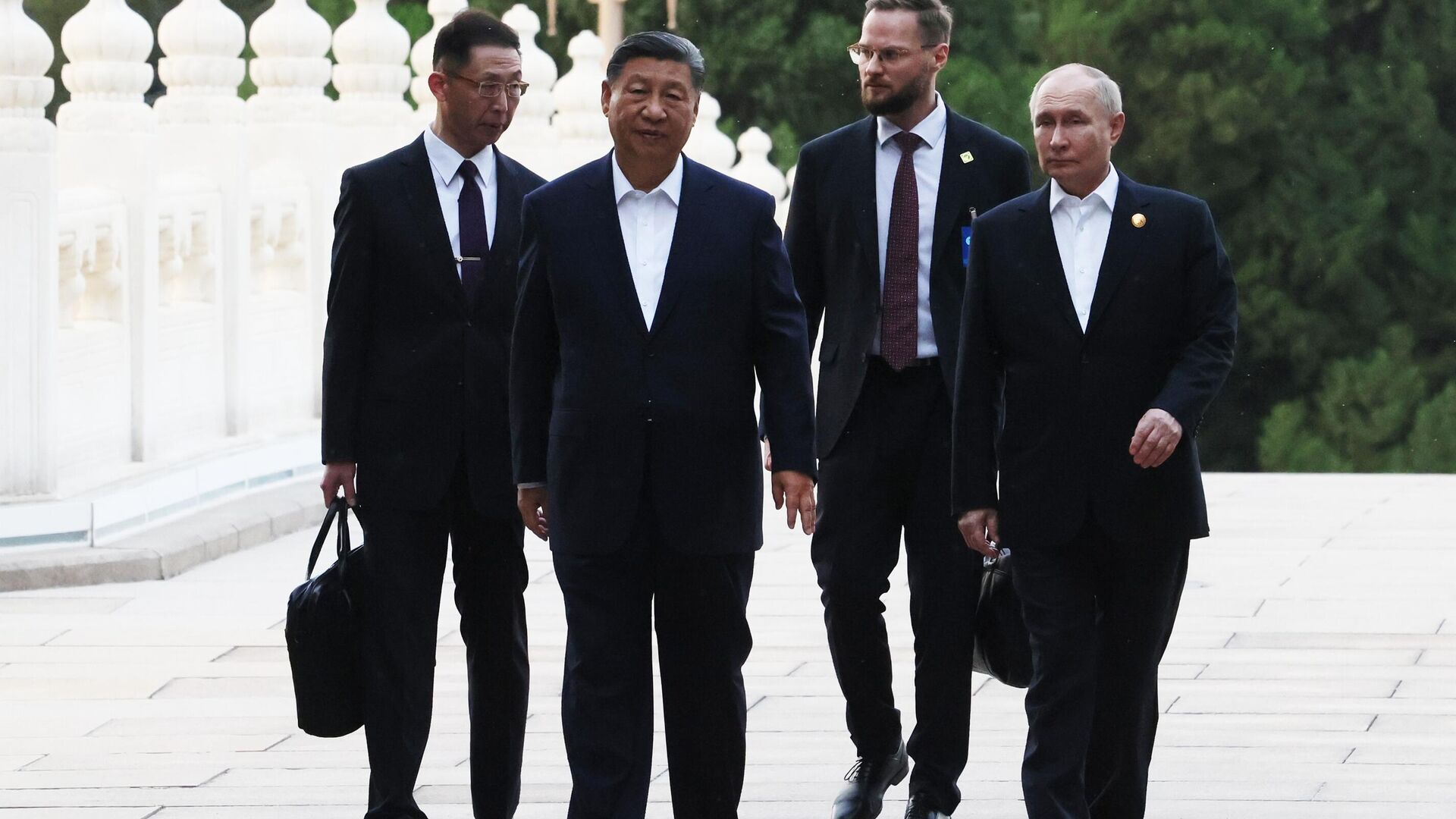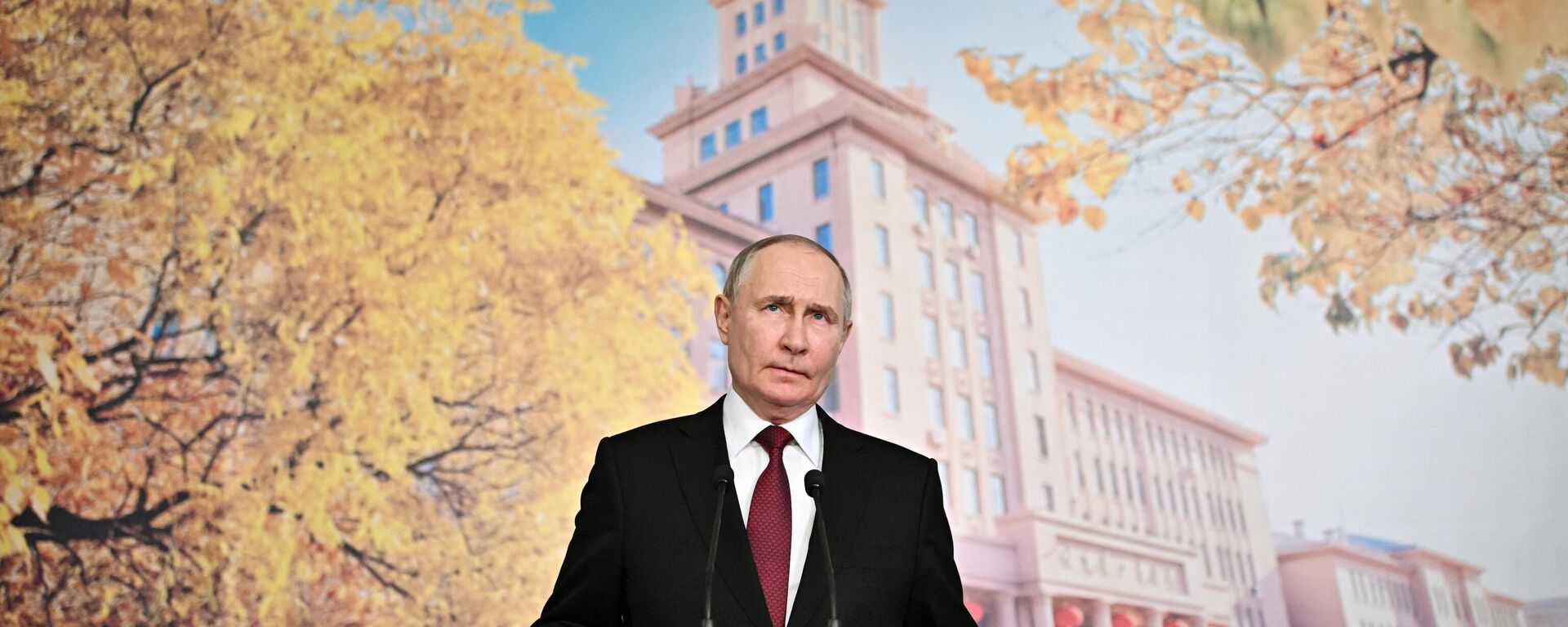https://en.sputniknews.africa/20240517/russia-china-friendship-makes-west-fear-south-african-expert-on-role-of-two-countries-in-world-1066598644.html
Russia-China Friendship Makes West 'Fear': South African Expert on Role of Two Countries in World
Russia-China Friendship Makes West 'Fear': South African Expert on Role of Two Countries in World
Sputnik Africa
Russian President Vladimir Putin visited China this week on his first foreign trip since his re-election. He held extensive talks with Chinese President Xi... 17.05.2024, Sputnik Africa
2024-05-17T18:45+0200
2024-05-17T18:45+0200
2024-05-17T18:56+0200
opinion
vladimir putin
xi jinping
russia
china
sputnik africa
africa insight
ruble
economy
trade
https://cdn1.img.sputniknews.africa/img/07e8/05/11/1066599460_0:224:2848:1826_1920x0_80_0_0_43b082c67f1beabb428bd0a141e78892.jpg
The "very serious friendship" between Russia and China is "likely to last long" and makes the West afraid, Koffi Kouakou, Senior Lecturer at the Centre for Africa-China Studies, University of Johannesburg, told Sputnik Africa.But why are Western countries so afraid? According to Kouakou, they fear losing their dominant position in the world.Moreover, these postures of Western countries are not only "hegemonic" but also "aggressive," and, unlike China and Russia, do not aim to build peace and prosperity around the globe.Furthermore, during his visit to China, the Russian leader stated that 90% of all payments between Russia and China are made in rubles and yuan. This, as Kouakou pointed out, indicates the decreasing role of the US dollar in global trade.Equally important is that the example set by China and Russia will help other countries, particularly African nations, to expand their currency baskets, which in turn will lead to lower costs in various areas.Last but not least, Kouakou touched upon the aggressive statements made by Western leaders and how they affect the possible peaceful settlement of the Ukrainian crisis. He pointed out that such rhetoric will only worsen the situation and delay the conclusion of a peace treaty.
https://en.sputniknews.africa/20240517/have-they-gone-crazy-putin-talks-on-peace-meeting-on-ukraine-sanctions-and-national-security-1066592782.html
russia
china
west
asia
ukraine
Sputnik Africa
feedback@sputniknews.com
+74956456601
MIA „Rossiya Segodnya“
2024
Christina Glazkova
https://cdn1.img.sputniknews.africa/img/07e7/0b/07/1063380906_0:0:673:674_100x100_80_0_0_79628b4d0cd9f29291a57aa13bbf9e7a.jpg
Christina Glazkova
https://cdn1.img.sputniknews.africa/img/07e7/0b/07/1063380906_0:0:673:674_100x100_80_0_0_79628b4d0cd9f29291a57aa13bbf9e7a.jpg
News
en_EN
Sputnik Africa
feedback@sputniknews.com
+74956456601
MIA „Rossiya Segodnya“
Sputnik Africa
feedback@sputniknews.com
+74956456601
MIA „Rossiya Segodnya“
Christina Glazkova
https://cdn1.img.sputniknews.africa/img/07e7/0b/07/1063380906_0:0:673:674_100x100_80_0_0_79628b4d0cd9f29291a57aa13bbf9e7a.jpg
vladimir putin, xi jinping, russia, china, sputnik africa, africa insight, ruble, economy, trade, west, international, asia, currency, ukraine crisis, ukraine, weapon deliveries
vladimir putin, xi jinping, russia, china, sputnik africa, africa insight, ruble, economy, trade, west, international, asia, currency, ukraine crisis, ukraine, weapon deliveries
Russia-China Friendship Makes West 'Fear': South African Expert on Role of Two Countries in World
18:45 17.05.2024 (Updated: 18:56 17.05.2024) Christina Glazkova
Writer / Editor
Longread
Russian President Vladimir Putin visited China this week on his first foreign trip since his re-election. He held extensive talks with Chinese President Xi Jinping about all aspects of strategic cooperation between the two nations. Sputnik Africa discussed the visit and Chinese-Russian relations in general with an expert.



